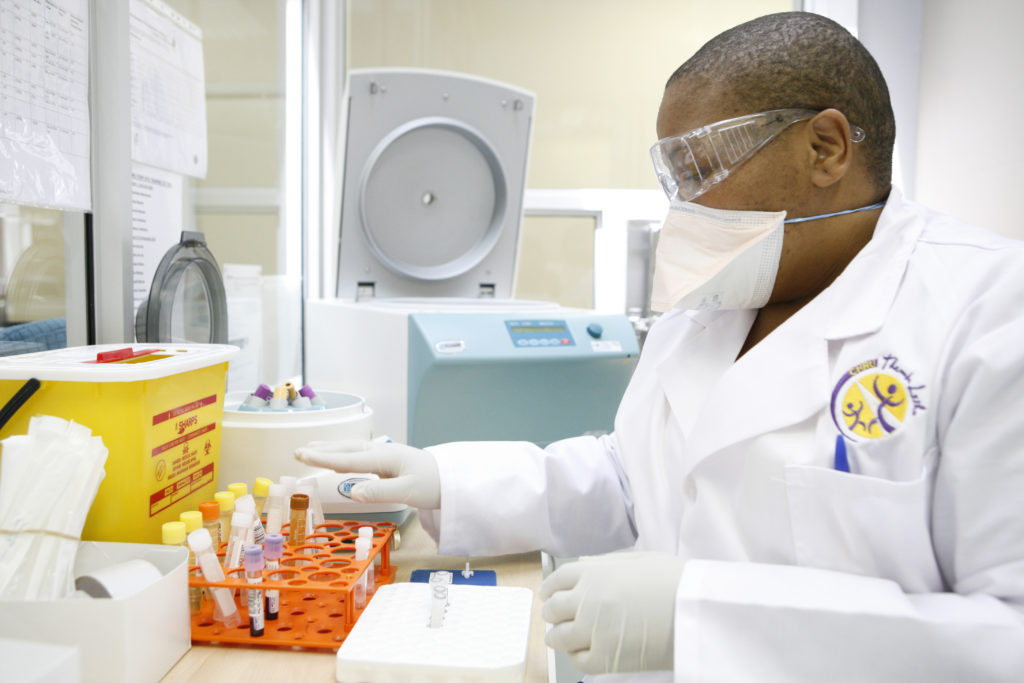STREAM is the first large-scale, multi-country clinical trial to examine shortened regimens for multidrug-resistant tuberculosis (MDR-TB). It is also the first phase III trial to test the efficacy and safety of bedaquiline, a new drug with a ‘novel mechanism of action’[1], within a shortened treatment regimen. Having recruited more than 1,000 patients since it began recruitment in 2012, STREAM is now the world’s largest recruited clinical trial for MDR-TB.

With approximately 500,000 new cases of MDR-TB every year, MDR-TB remains one of the world’s most significant public health challenges. Despite the urgency of the issue, when STREAM began, no new TB drug had been approved by the US FDA in more than 40 years.
The STREAM Trial has already contributed important evidence to support the introduction of shorter MDR-TB regimens, and Stage 2 of the trial, which is currently ongoing, is expected to contribute additional evidence to guide future decisions about the use of more tolerable, all-oral regimens.
History of the trial
As the MDR-TB treatment landscape has evolved, the STREAM clinical trial has adapted to remain focused on the most relevant unanswered questions about better MDR-TB treatment regimens. In early 2012, when the trial began, the standard of care for MDR-TB lasted up to 24 months, included an injectable agent and had an average success rate of just over 50%. Stage 1 aimed to generate evidence to support the use of an effective new regimen that would significantly reduce treatment time for MDR-TB. Bedaquiline, which received US FDA approval in December 2012, also offered a possible alternative to regimens containing injectable agents, which are associated with significant side effects, including hearing loss and renal impairment. Stage 2 of the trial was initiated to generate evidence regarding the efficacy of shorter, bedaquiline-containing regimens. Bedaquiline has become increasingly available and many countries have already begun to move toward replacing injectable agents with bedaquiline as their standard of care. However, there are currently no phase III clinical trial data available regarding the efficacy and safety of bedaquiline for treatment of MDR-TB. Stage 2 of the STREAM clinical trial therefore remains highly relevant.
STREAM Stage 1
Stage 1 of the STREAM Trial began in 2012 and recruited 424 participants in Ethiopia, Mongolia, South Africa and Vietnam. Stage 1 sought to determine whether a 9-month treatment regimen that demonstrated cure rates exceeding 80% during a pilot in Bangladesh could achieve similar success in other settings. Preliminary results for Stage 1 were released in October 2017 and indicated that favorable outcomes for participants on the control (longer) and intervention (9-11-month) regimens were very similar under trial conditions.
Following release of the preliminary results, the World Health Organization (WHO) acknowledged the importance of STREAM:
We appreciate the significant work done by the [STREAM] study investigators to generate randomized controlled clinical trial evidence for the shorter regimen. […] Having evidence-based policies is key to improving care for patients affected by the global public health crisis of MDR-TB.
Dr Tereza Kasaeva
Director of WHO’s Global TB Programme.
Stage 1 results were disseminated widely to all key stakeholders, including international organizations, Ministries of Health, community advisory boards, community members and trial participants.
To read more about the results of STREAM Stage 1, click here.
STREAM Stage 2
Stage 2 of the STREAM Trial began in 2016 and closed to participant enrollment in January 2020, with a total of 588 participants recruited to all arms of the trial. Stage 2 is evaluating the efficacy, safety, and cost of a 9-month all-oral, bedaquiline-containing regimen vs. the 9-month injectable-containing regimen evaluated in Stage 1. STREAM continues to make important contributions to generating high-quality evidence related to shorter, more tolerable treatments for MDR-TB.
A 9-month fully oral regimen would not only help more patients to complete treatment but could also help to reduce the spread of drug-resistant infection.
Professor Andrew Nunn
Co-Chief Investigator for the STREAM trial.
Initial trial results from Stage 2 of the trial are expected in 2022. Thirteen Stage 2 sites in Ethiopia, Georgia, India, Moldova, Mongolia, South Africa, and Uganda are participating in Stage 2 of the trial.
[1] https://www.who.int/tb/challenges/mdr/bedaquiline/en/
